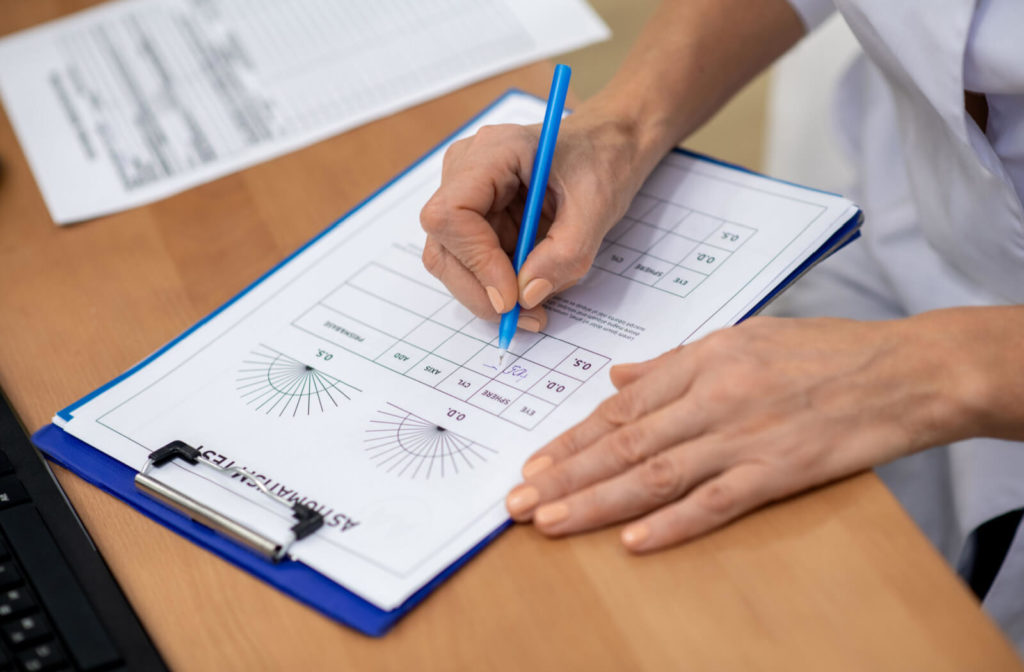Your eyesight is precious, so ensuring that you stay up-to-date with your prescription for your glasses or contact lenses is essential. It all starts with a trip to your optometrist for a comprehensive eye exam.
But how long do prescription glasses last? Let’s explore how often your prescription needs updating, how often you should get a comprehensive eye exam, and what to expect during your exam.
Unlocking the Potential of Your Vision
Your eyes are unique, and everyone’s vision is different. Consistent eye exams allow your optometrist to become familiar with your eyes and vision. It’s recommended that you have an eye exam annually while your optometrist becomes familiar with your eyes.
From then on, your optometrist will work with you to create an eye exam schedule that best serves your unique visual needs.
Unlocking the potential of your vision starts with getting your most recent prescription for glasses or contact lenses. Your prescription is used to customize your choice of visual aid, whether it’s glasses or contact lenses.
Your options when it comes to prescription lenses are numerous, and they include:
- High index lenses
- Multifocal lenses
- Progressive lenses
- Transitions lenses
- Polycarbonate lenses
- Polarized lenses
Your optometrist can help determine the lens option that suits your eyesight and lifestyle following a comprehensive eye examination.
When you get that updated prescription, you’ll get an opportunity to browse frames that match your unique style and personality. Whether you’re looking for designer frames or something subtle, your prescription unlocks unlimited possibilities.
How Long Does Your Prescription Last?
The age-old question is, how long does your prescription actually last? The answer is that it depends on your eyes and vision. Eyeglass prescriptions usually last from 1 to 2 years, but this can change based on your vision.
Your eyes are ever-changing, so the changes to your prescription will depend on how your vision changes over the years.
That’s why consistent eye exams are crucial. Your optometrist can monitor changes in your vision and adjust your prescription accordingly. It’s vital to wear glasses or contact lenses with an updated prescription—otherwise, your eyes can potentially be damaged.
What to Expect During Your Eye Exam
While updating your prescription is important, your eye exam is about more than just that. A comprehensive eye exam starts with your optometrist asking you questions about your day-to-day and your medical history.
During the exam, your optometrist will go through a series of tests and screen for common eye diseases like:
- Glaucoma
- Cataracts
- Diabetic eye diseases
- Age-related macular degeneration
Your eye health is important, and early detection means early treatment for any developing eye conditions. Consistent eye exams allow your optometrist to prepare a personalized treatment plan based on your visual needs to preserve your long-term vision.
Eye diseases can affect your vision with little to no warning or symptoms, so staying up-to-date with your eye exams is essential.
Keeping Your Vision Clear
An updated prescription is essential to keep your vision healthy and clear. Staying consistent with your eye exam schedule can help your optometrist check for any developing eye disease issues and update any changes in your prescription. Your prescription usually lasts 1 to 2 years, but it’s always good to get yearly eye exams. Book an appointment with your optometrist at Dr. Henslick Vision Center and see if your prescription is due to be updated.



